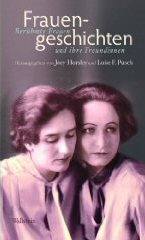Biographies Muriel Gardiner Buttinger

born November 23, 1901 in Chicago
died February 6, 1985 in Pennington, New Jersey
U.S. resistance fighter and psychoanalyst;
Model for Lillian Hellman's "Julia" from Pentimento
120th birthday on November 23, 2021
Biography • Quotes • Literature & Sources
Biography
Muriel Gardiner Buttinger, after whom a square is named in Vienna, was the only U.S. American to be active in the Austrian anti-fascist resistance. She saved the lives of many Austrians. It was not until 1983 that she published, at the age of 82, the account of her Vienna years 1926-1938 in English, under the title Code Name “Mary”; German (1978) and French (1981) versions had preceded it.
Gardiner had come to Vienna to be psychoanalyzed by Freud. He passed her on to his student Ruth Mack Brunswick. In order to become a psychoanalyst herself, Gardiner stayed in Vienna and began to study medicine. Although she came from a wealthy family, she was a convinced socialist and joined the resistance. In 1934 she went underground, making her two apartments and her remote vacation home in the Wienerwald (Vienna Woods) available for conspiratorial meetings.
She had a daughter, Connie, with an Englishman named Gardiner. Her great love was Joseph Buttinger, the head of the Austrian socialist resistance. After the Anschluss in 1938, she risked her life to provide numerous politically and/or racially endangered persons with money, affidavits and false passports to get them out of the country and to safety.
Muriel Gardiner's biography is linked in a very strange way to that of U.S. playwright Lillian Hellman. In 1973, Hellman published the memoir Pentimento, the most famous chapter of which, “Julia,” was successfully filmed with Jane Fonda and Vanessa Redgrave. The film shows how Hellman is inspired to heroic action by her heroic friend Julia. “Julia” is based on parts of Muriel Gardiner's biography, which Hellman intertwined with freely invented statements about her own life. Hellman had learned of Gardiner's heroic deeds from a mutual acquaintance.
As early as 1980, Mary McCarthy had called Hellman a notorious liar on a talk show, after which Hellman sued her for more than $2 million in damages. Hellman's chances worsened when Gardiner's memoirs appeared. Before the case went to trial, Hellman died, in 1984. Muriel Gardiner did not participate in the controversies surrounding the Hellman-Gardiner -McCarthy case. To a personality of her stature and perspective, such petty agitations and vanities were quite alien in any case.
(Text from 2000)
Translated with www.DeepL.com/Translator (free version), edited by Joey Horsley
Author: Luise F. Pusch
Quotes
She stayed, against all reason - ostensibly to finish her medical studies, but more so to help her friends. From them, the news of her helpfulness and compassion spread to their friends, to the friends of those friends, finally to all who were in trouble ... until she was surrounded by a great crowd of potential victims who saw in her their only hope of salvation. (Anna Freud)
Literature & Sources
Gardiner, Muriel. 1976. The Deadly Innocents: Portraits Of Children Who Kill. Vorwort: Stephen Spender. New York. Basic Books.
Gardiner, Muriel. 1983. Code Name “Mary”: Memoirs of an American Woman in the Austrian Underground. New Haven; London. Yale UP.
Hellman, Lillian. 1973. Pentimento: A Book of Portraits.
Wright, William. 1986. Lillian Hellman: The Image, the Woman. New York. Ballantine.
If you hold the rights to one or more of the images on this page and object to its/their appearance here, please contact Fembio.



